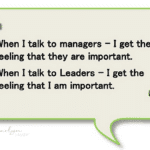I hate to talk trash about Mom, particularly right after her special day . . but, regardless of what she’s told you through the years, practice doesn’t make perfect. More about that in a minute.
A friend recently had the pleasure of attending a presentation lead by Dr. Paul Hersey, founder of the Center for Leadership Studies and father of Situational Leadership. Even though my friend deals with these topics every day, his head was virtually swimming with performance readiness concepts, directive and supportive behavior theory, leader response formulas . . uh, oh – I sense collective eye-glazing so I’ll move along.
We’ve all been exposed to leadership styles, performance management, and influence behaviors. Hopefully, we practice strong leadership principles in our workplaces. But it isn’t until you get to hear about the very fundamentals of these principles and learn firsthand where many of the more contemporary theories had their origin that everything falls into sharp focus. I encourage you to seek out these distinguished authorities and, if possible, hear what they have to say.
And Mom? Well, Dr. Hersey pointed out that practice doesn’t make perfect –
Perfect practice makes perfect.
Sounds simple enough but what does this mean in our workplace? Leaders at all levels are responsible for guiding what their employees do. Are they leading their staff to perfection in their jobs or simply reinforcing mediocre behavior? And, if it’s the latter, do they know how to positively influence their people to do better?
1






